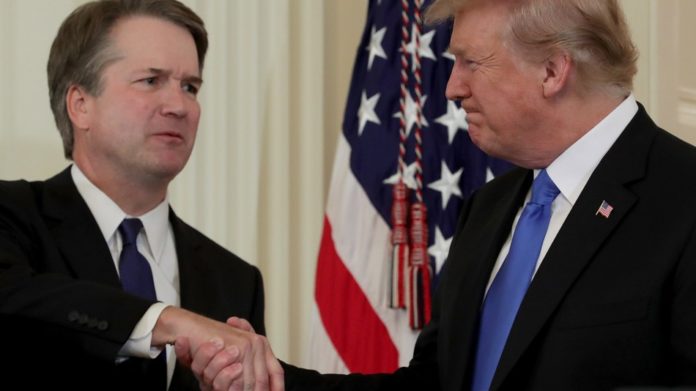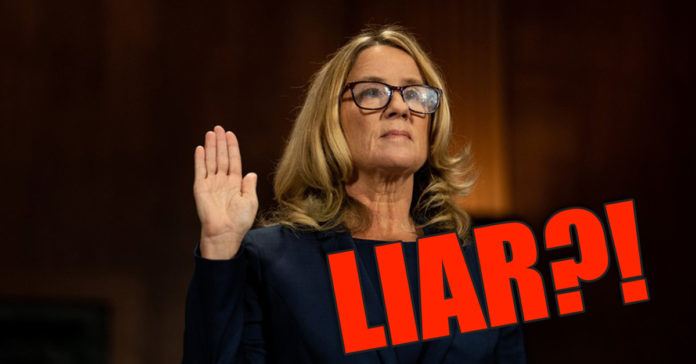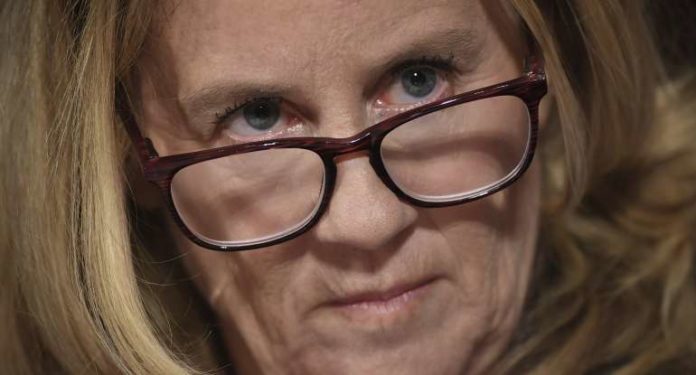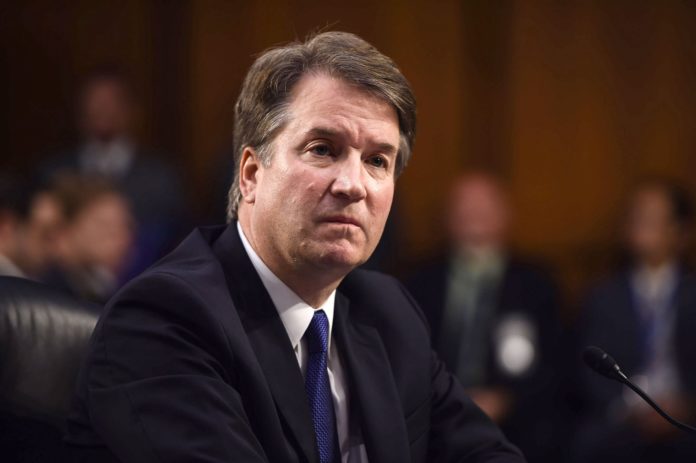I’ve drawn up a list of questions relevant to the FBI investigation of Christine Blasey Ford’s sexual assault allegation against Supreme Court nominee Brett Kavanaugh.
Several, including the first ones, are for the FBI to answer. The rest are for the FBI to ask of Ford and others, including her parents and her siblings. The FBI may not read this, of course, but it may help you assess the FBI’s work and Ford’s credibility. It can be difficult for any of us to remember an incident. And our memories can play tricks. As an examiner, all we can do is try to help the alleged witness remember what happened, with all five senses and the accompanying emotions.
I number these for reference. I have sought to avoid including any questions that appeared to have been answered already.
I won’t address why I’ve included each question, but let me describe the two groupings of questions.
First, there are a few questions on Ford’s knowledge of national current affairs and of Washington, D.C., affairs, and on her knowledge of Kavanaugh’s career. It may be that because she lives on the West Coast and works in a field unrelated to history, current events, journalism, law, and government, Ford may have been totally oblivious to Kavanaugh’s career. Until we know the answers to those questions, we don’t know. But a good prosecutor could line up one detail after another, and raise suspicions about why, after all of the national notoriety Kavanaugh received, especially after his nomination to the D.C. Circuit (that lasted three years), she raised no allegation against him before his nomination to the Supreme Court.
Second, there are questions about who knew Ford was leaving the gathering on the first floor to go upstairs. It is not likely that two boys lay in wait on the second floor for her. So they must have gone up the stairs behind her, so close behind her that she didn’t have enough time to get to the bathroom. Not just one boy, but two. And neither of them lived in that house. And she didn’t notice, or hear, that? And no one else noticed this oddity either?
Below are 61 questions the FBI should answer about Ford’s story.
The Prior Six Background Checks
1. In the prior six FBI checks, do the names of Christine Blasey Ford and her friend Leland Ingahm Keyers appear?
2. Did the names of Mark Judge or Patrick James (“PJ”) Smyth, whom Ford named as present, appear in the background checks?
3. Did the names of any women from Holton-Arms School appear in the background checks?
4. Did the names of anyone from Columbia Country Club appear?
Washington Happenings And Kavanaugh’s Career
5. How often and for what purposes has Ford returned to the D.C. area?
6. Over the past 20 years, how did Ford keep up with national events? And of local D.C. area news? Through relatives, friends, former classmates, newspapers, the internet, or some other way? Would friends, colleagues, former classmates, etc., regard her as fairly knowledgeable about national events or D.C. area affairs?
7. How many of Ford’s relatives, in addition to her brothers Tom and Ralph III, are lawyers?
8. Was Ford aware that candidates for bar admission must be the subject of background checks on moral fitness?
9. Was Ford aware that Kavanaugh’s mother was the judge in a case involving her parents? And she was a judge in a 1998 case where one of her brothers appeared?
10. Under what circumstances did Ford learn that federal government personnel are the subject of FBI background checks? Have any of her friends, co-workers, relatives, etc., ever been the subject of FBI background checks?
11. Did Ford know Kavanaugh attended Yale undergrad and Yale Law? If so, when did she first learn this?
12. Did Ford ever learn of his admission to the bar in any state, or D.C.?
13. Did Ford know he clerked for Third Circuit Judge Stapleton, Ninth Circuit Judge Kozinski, and Supreme Court Judge Kennedy? If so, when did she first learn this?
14. Did Ford know he worked in the Office of the Solicitor General at the Department of Justice, in the Office of Independent Counsel Ken Starr (in connection with the impeachment of President Clinton), and with the first presidential campaign of George W. Bush, or in the George W. Bush White House? If so, when did she first learn any of this?
15. When did Ford first learn of the mid-2003 nomination by President George W. Bush of Kavanaugh to the D.C. Circuit, which ended with his mid-2006 confirmation, and any of the news concerning these events in those three years?
16. Did Ford ever consider, during the time of his 28-year legal career, before his name appeared on a list of possible candidates for nomination to the Supreme Court, contacting any authorities?
The Alleged Incident — Identification
17. Have Ford and her friend Leland Ingham Keyser ever been shown high school-age pictures, in proper police investigative fashion, of the following people whom she alleges, were present at the gathering and whom she alleges she knew their names at the time: Kavanaugh, Judge, and Smyth?
18. Have Kavanaugh, Judge, and Smyth ever been shown high school-age pictures, also in proper police investigative fashion, of the following people whom Ford alleges, were present: Ford and Keyser?
19. Has Ford ever described the physical appearance, including face, facial hair, hair, and clothes, of herself, Keyser, Kavanaugh, Judge, and Smyth on the night of the alleged incident? What were those details?
The Alleged Incident — Before The Gathering
20. When did Columbia Country Club pool close on any given day in the summer of 1982?
21. In the summer of 1982, did Ford customarily eat dinner at the Columbia Country Club? Or at the home of a friend? Or the home of her parents?
22. When, and from whom, did Ford learn of the gathering in the Maryland residence? How would she have learned the address?
23. How much time elapsed between Ford’s swimming and diving at the Columbia Country Club and the time she arrived at the gathering at the residence in Maryland?
24. In the summer of 1982, did Ford customarily wear a watch? Did she have a purse, a book bag, a swim bag, or anything that she carried or wore?
25. In the summer of 1982, would Ford customarily have removed her swimsuit before leaving the Country Club? Why did she not remove her swimsuit when she left the Country Club the day of the alleged incident?
26. Ford testified she didn’t recall how she got to the home of the alleged incident. Did she ride a bicycle in the summer of 1982? Did she walk distances more than a half mile? If she had walked that night, would she have remembered it—because it was unusual, or because of the weather, or the darkness, or the distance? Would she have walked alone? When she was driven to any activities on summer evenings in 1982, who would customarily drive her? Or who might have driven her, even if not customary? Parents? Siblings? Friends?
27. In the summer of 1982, would Ford ordinarily have told her parents or siblings or friends where she was going, for what purpose, or for how long, especially if it were after dark? During the summer of 1982, were both parents living at her home? Were her siblings living at her home? And what were their ages? How unusual was it for her to stay out after dark?
28. Whom did Ford expect to see at this gathering? Some boys? Boys from any particular school? Boys she knew?
29. How many people did Ford expect to see at this gathering?
The Alleged Incident — At The Gathering
30. Ford testified that the gathering at the residence in Maryland occurred at “night.” Was it dark when she arrived? Was it dark when she left?
31. In the summer of 1982, did Ford have 20/20 vision? With glasses or contacts?
32. Did Ford see anyone at the gathering she had not met before? Did she see anyone whose presence was a surprise? Was she happy to see anyone present? If so, whom?
33. When did Ford first learn that there were no adults present?
34. Did the house belong to one of the people Ford identified? Keyser, Judge, Smyth, Kavanaugh, or the unnamed other?
35. While Ford may have forgotten, did she know at the time whose house it was?
36. Was this the first time Ford had a beer? Or beer at a gathering with boys? Did she have an empty stomach?
37. How long would Ford estimate that she was in the home before she left the first floor to go to the second-floor bathroom?
38. For what purpose was Ford going to go to the bathroom? Use toilet, fix hair, felt sick, etc.? If she had a purse or a bag, did she bring it with her to the bathroom? If she had a purse or a bag, did she have such articles with her when she left the bedroom and the house?
39. Did Ford announce her intent to anyone to use a bathroom? Since she had not been to the house before, how did she learn its location? Did she have a choice of bathrooms, such as one on the first floor, and one on the second? Did someone show her the way to the bathroom?
40. What was the lighting like on the first floor? Stairwell? Second floor?
41. When Ford was on the first floor, could she hear the music from the second floor? (Maybe that’s the reason the music was being played on the second floor. Maybe that’s the reason the volume was turned up when the door was shut.)
42. Where were Kavanaugh and Judge just before Ford went upstairs to use the bathroom? Were they in the living room? (If so, they followed her, and they followed her close enough that she couldn’t get to the bathroom before being pushed into the bedroom.) Or were they absent from the living room (perhaps, therefore, on the second floor)?
43. Were the stairs a full story or a half-story? Were they carpeted or hardwood?
44. What was the layout of the second floor, seen, even if briefly, from the top of the stairs? Were there any doors on either side of the hallway between the top of the stairs and the bedroom into which she was pushed?
45. How long was the time between Ford being pushed into the bedroom and her hasty departure?
46. Ford remembers the “uproarious laughter” by the two attackers. She testified that one or both boys raised the volume of the music. Does she remember anything else about the music being played?
47. What was the lighting like in the bedroom? Bright? Dim? A ceiling fan?
48. Does Ford remember any smells of the boys—bad breath, liquor, beer, sweat, cologne?
49. When Ford left the bedroom, were her clothes or hair disheveled? If so, did she take any time to compose these while she was in the bathroom, or before she came downstairs, or after she left the house?
50. Did Ford go out the front door or some other door? Did she go out the same door in which she entered?
51. Ford testified the living room was sparsely (or modestly) furnished and to the position of the bed in the bedroom. What else regarding the outside of the house (brick, stone, siding, doorway, door) or inside (colors of carpet, walls, drapes, artifacts hung on the walls)?
52. Before Ford left the house, did she say or do anything to signify to any of the others that she was leaving?
53. From where people were standing or sitting, could anyone have seen Ford leave the house?
54. Did Ford look toward anyone? Was anyone looking her way?
The Alleged Incident — After Ford Exited The Gathering
55. When Ford left the house, did she expect her friend Keyser to follow her?
56. Since Ford says she doesn’t remember how she got home: Might she have taken a bike? Might she have walked? If she was driven, who might have driven her and how would they have known that she was ready to be picked up and where?
57. How did Ford know the way to her home? Any recollection of street names that she saw going or coming from the home?
58. Did anyone at the gathering (Keyser, Kavanaugh, Judge, Smyth) know where Ford lived?
59. When Ford arrived home, how late was it? Was anyone awake (parents, siblings) and active (watching TV, entertaining friends, etc.)?
60. Since Ford left abruptly, and alone, at night, from a house she hadn’t been to before, why does she think Keyser never asked her why she left abruptly? Although Keyser does not recall this evening or this incident, does Keyser regard Ford’s behavior in going upstairs with two boys during high school years to have been unusual? And departing abruptly from small gatherings to have been unusual?
61. Did Ford ever ask anyone, even just out of curiosity, how the rest of the evening went?

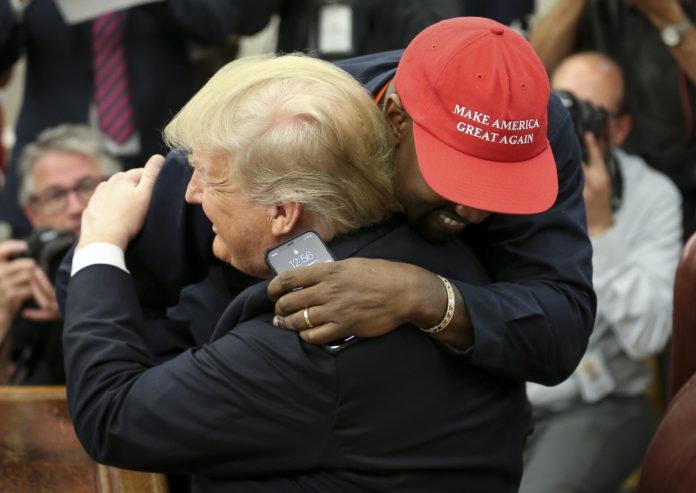
![[thefederalist.com]_8ff1_POTD-October-11-2018-998x665](https://politicalelectorate.com/wp-content/uploads/2018/10/thefederalist.com_8ff1_POTD-October-11-2018-998x665-696x464.jpeg)

